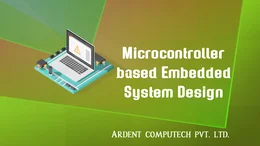
Microcontroller based Embedded system design
The Microcontroller-based Embedded System Design course is a comprehensive, hands-on program designed to equip students with the foundational and practical skills required to build embedded systems using popular microcontrollers such as the 8051 and Atmega16. Embedded systems are at the heart of almost every modern electronic device—from household appliances and medical instruments to automotive systems and industrial controllers. With billions of microcontrollers deployed worldwide each year, this field offers immense career and innovation potential.
This 14-module course begins with a solid grounding in embedded systems, real-time concepts, and the architectural principles that differentiate RISC and CISC processors. Students are introduced to the essential components and challenges of embedded system design, including system constraints like power, speed, and memory, and the need for real-time responsiveness in applications.
The course transitions into programming fundamentals using both assembly language and embedded C, enabling students to directly interact with microcontroller hardware. Early modules cover programming concepts for I/O port control, memory manipulation, and instruction execution, using the Keil IDE for 8051 development and CodeVision AVR for Atmega16. These modules are designed to help learners gain confidence in writing low-level and high-level code, which is crucial for developing robust and optimized embedded applications.
A major emphasis of the course lies in interfacing microcontrollers with real-world devices. Students learn to connect and control various peripherals such as switches, keypads, LCD displays, and analog/digital sensors. These skills are vital for developing responsive systems that interact with their environment. Simulation tools like Proteus are used to visualize, test, and debug these interfaces in a virtual environment before deploying them to physical hardware.
In later modules, advanced programming concepts such as Pulse Width Modulation (PWM), looping structures, and conditional logic (e.g., if-else, switch-case) are covered to enhance decision-making and control in embedded systems. These techniques are essential for motor control, sensor data acquisition, and dynamic user interfaces.
The final two modules focus on the design and implementation of a mini-project, integrating both hardware and software components. Students go through the process of project planning, component selection, simulation, coding, and final deployment. Emphasis is placed on good documentation practices, as well as hardware testing and debugging techniques, to mirror real-world product development cycles.
By the end of the course, students will not only have built a functioning embedded system project but will also have gained deep insights into the theory, programming, and interfacing techniques that underpin modern embedded electronics. The course prepares participants for entry-level roles in embedded systems development or further academic pursuits in electronics and computer engineering.
This course is ideal for electronics and computer science students, engineering enthusiasts, and hobbyists with a basic understanding of C programming and electronics. It builds essential skills that are directly applicable to industries such as automotive, consumer electronics, industrial automation, and IoT product design.
- Understand the architecture and operation of embedded systems.
- Gain proficiency in assembly and embedded C programming.
- Learn to interface microcontrollers with various I/O devices.
- Utilize development tools and simulators such as Proteus and IDEs.
- Design and implement real-world embedded system applications.
- LIVE Online
- Offline in Kolkata
- Offline in Durgapur
- Offline in Institutions / Companies (for institutional and corporate training)
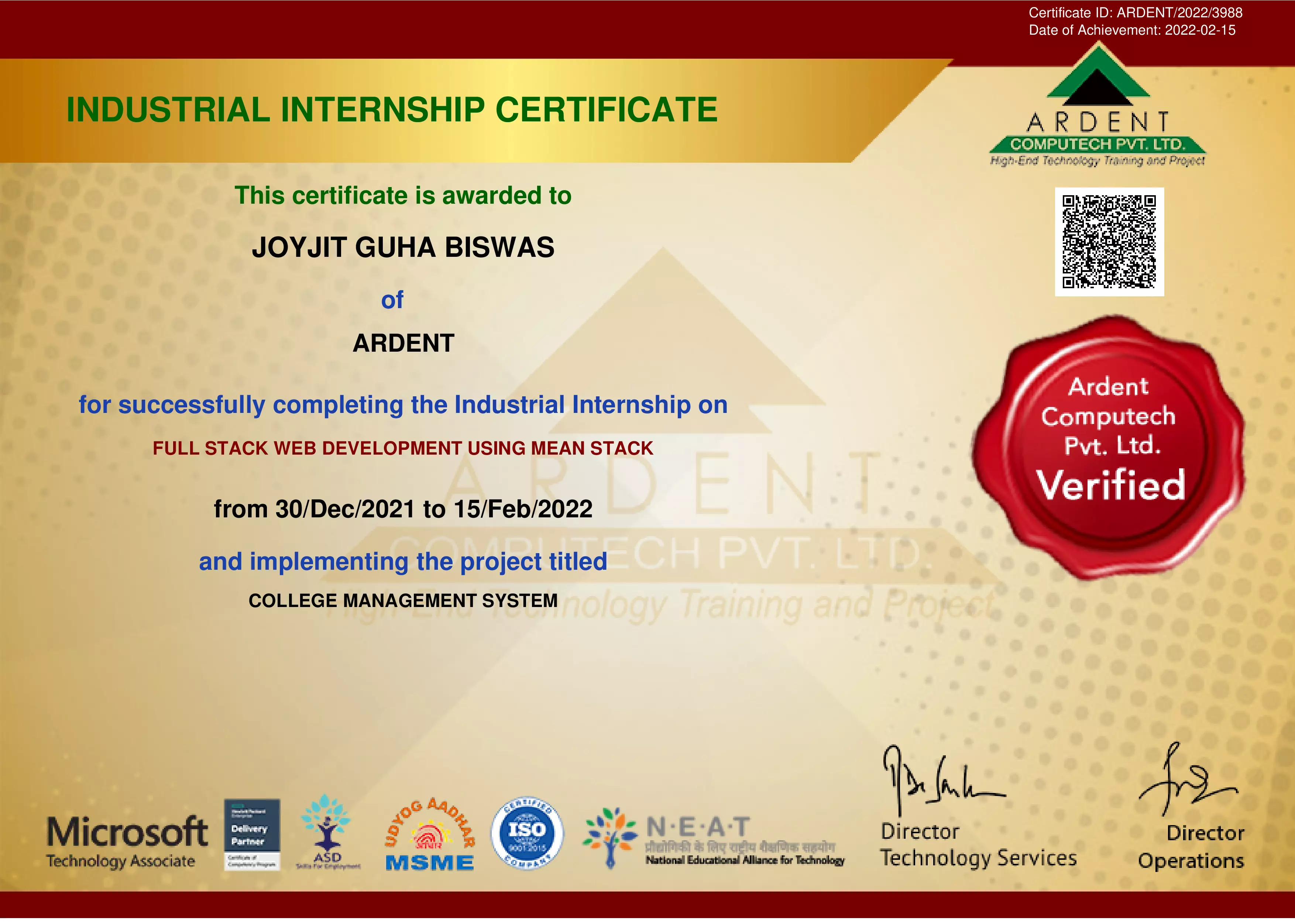
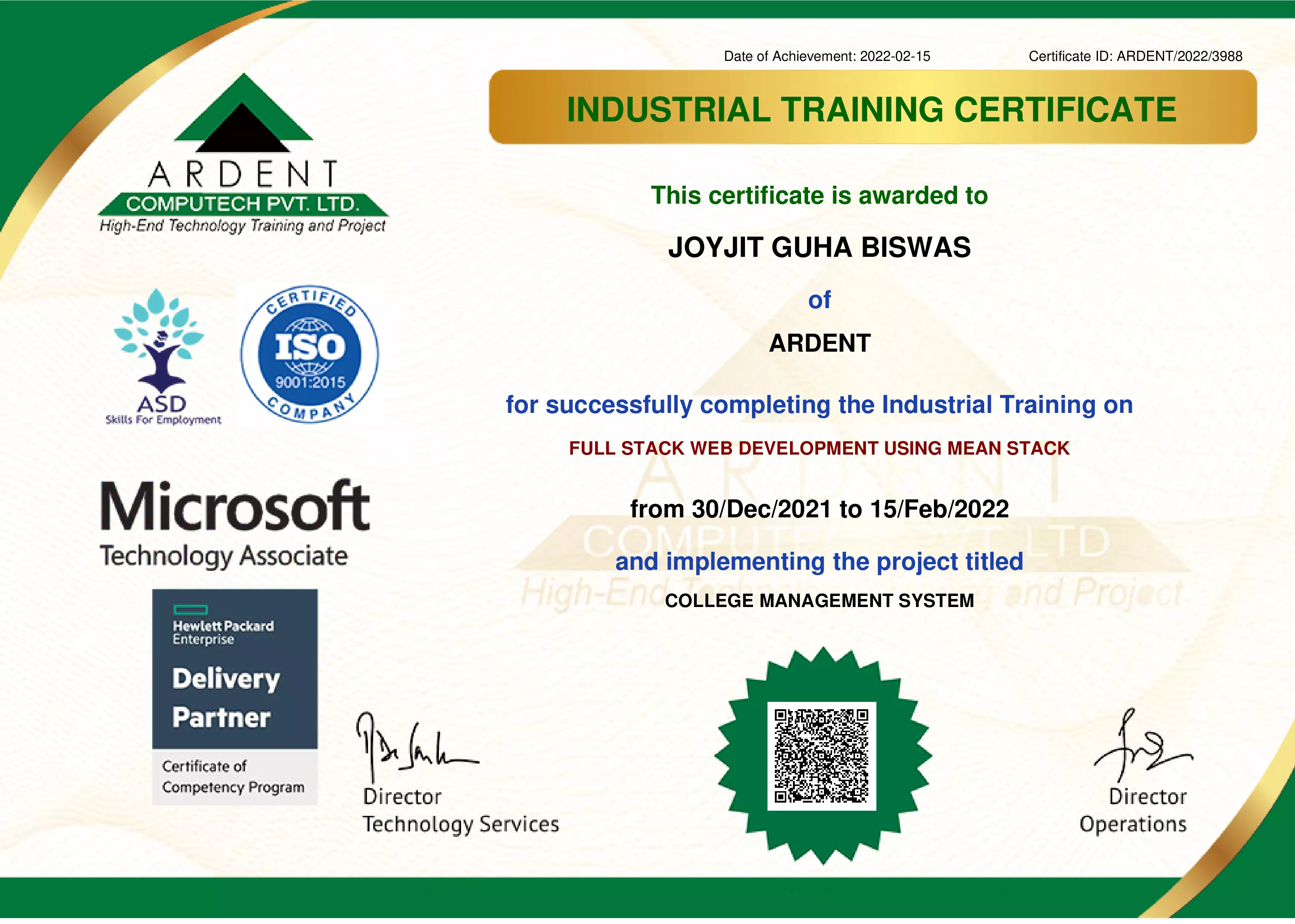
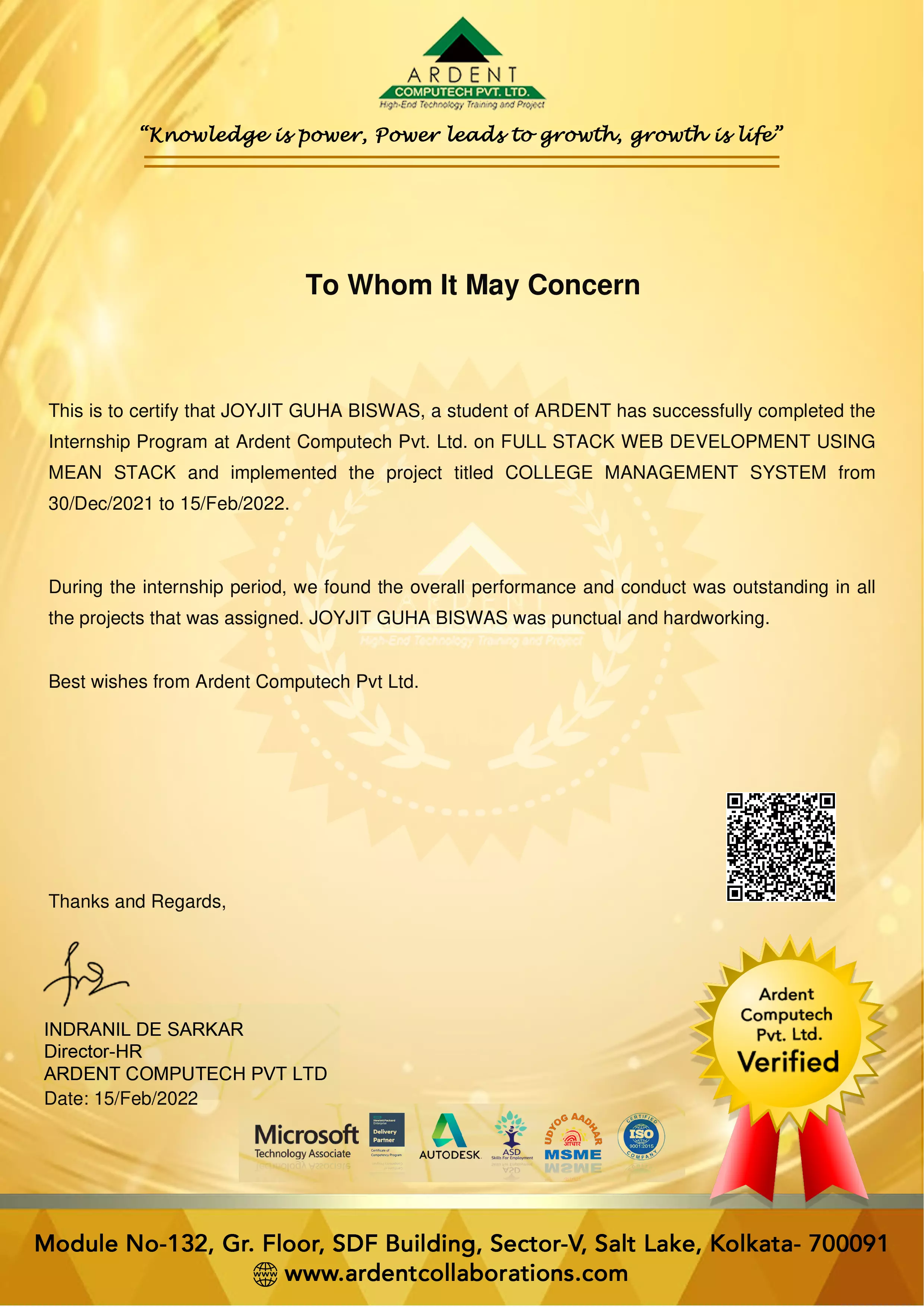
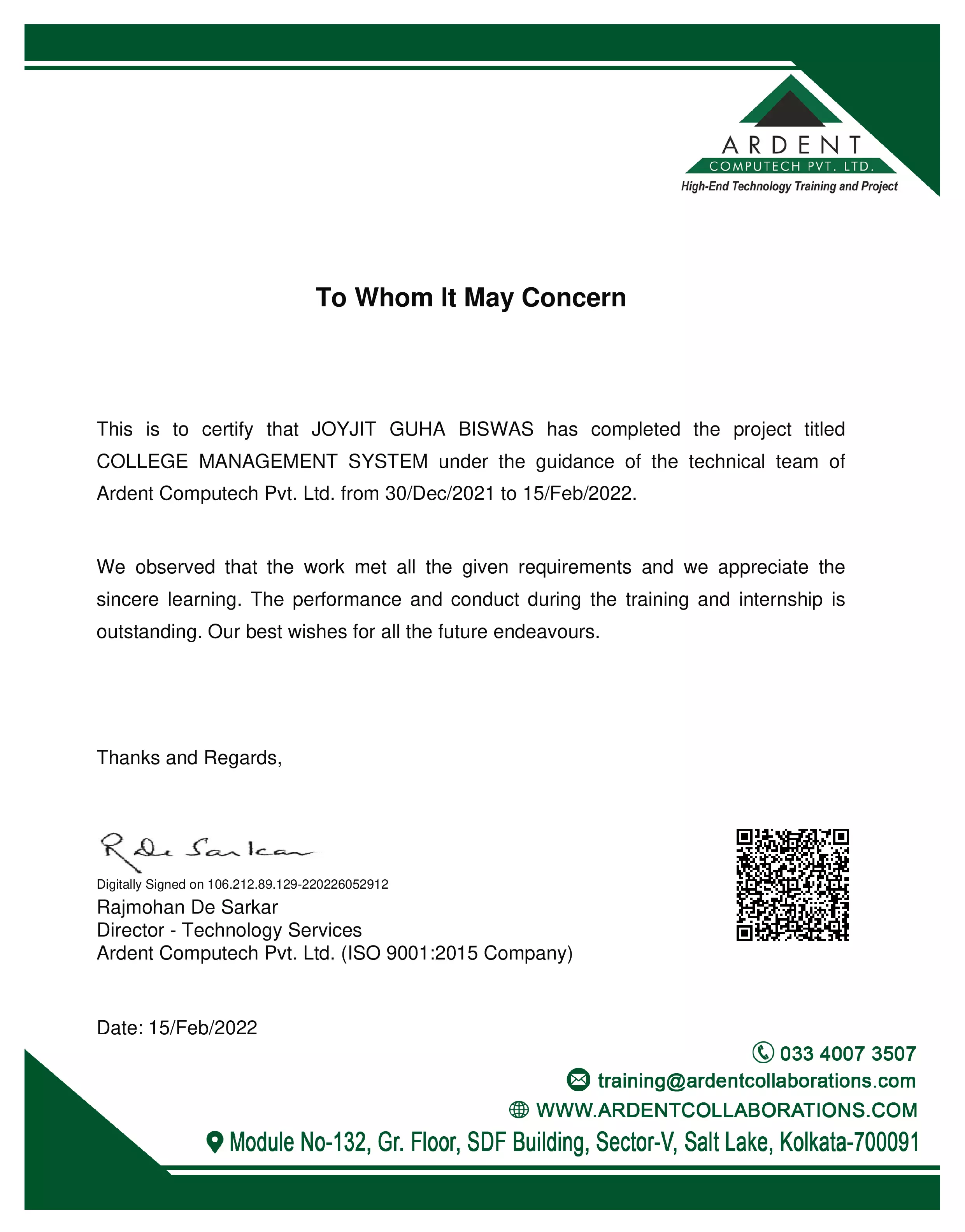
Course Modules
Industrial
- Duration - 30 to 40 Hours (2/3/4/6/8 Weeks)
- Daily / Weekly Classes
- 2 Case Studies & 1 Live Project
- Industrial Courses are only for students. You can avail this by producing valid proof of studentship. Work on assignments, case studies, and projects.
-
WHEN WILL YOUR COURSE/TRAINING/INTERNSHIP START AFTER ADMISSION?
As per our policy, we start the course/training/internship within 10 days from the date of enrollment. If you enroll for future month/date, our schedule team will coordinate with you and assign your class. To communicate with our schedule team for preferred timing, email to training@ardentcollaborations.com. All courses/internships can be scheduled in customised manner as per your requirements. - Download Content
-
SPECIAL OFFER - SAVE 50%
90004500
Professional
- Duration - 60 to 80 Hours (12/16/20/24 Weeks)
- Daily / Weekly Classes
- 4 Case Studies & 1 Minor Project & 1 Live Project
- Professional Courses are more comprehensive. The learning is case study based and project oriented. Ideal for passout students and working professionals.
-
WHEN WILL YOUR COURSE/TRAINING/INTERNSHIP START AFTER ADMISSION?
As per our policy, we start the course/training/internship within 10 days from the date of enrollment. If you enroll for future month/date, our schedule team will coordinate with you and assign your class. To communicate with our schedule team for preferred timing, email to training@ardentcollaborations.com. All courses/internships can be scheduled in customised manner as per your requirements. -
Download Content
-
SPECIAL OFFER - SAVE 50%
2750013750

